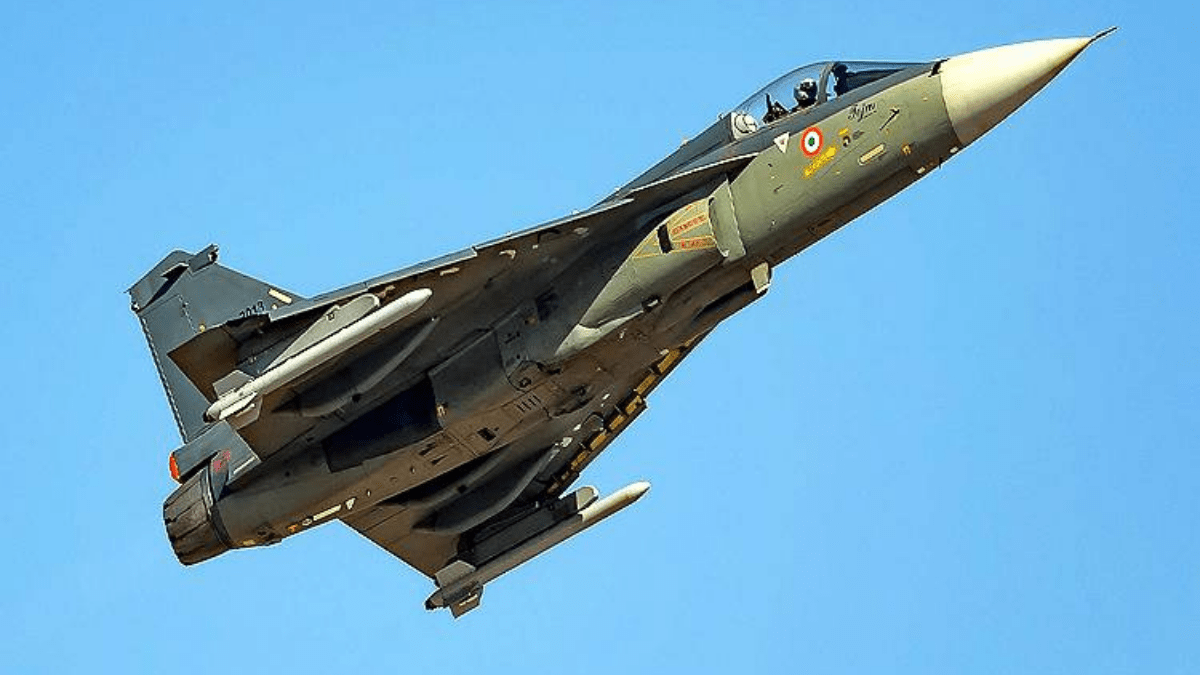Several Countries Have Shown Interest In Procuring Tejas: HAL Chairman

The delivery of the Tejas Light Combat Aircraft (LCA) to the Indian Air Force under a Rs 48,000-crore deal will begin from March 2024 and around 16 aircraft will be rolled out annually till the completion of the total supply of 83 jets, Chairman and Managing Director of Hindustan Aeronautics Limited R Madhavan said on Sunday.
In an interview to PTI, Madhavan also said that a number of countries have shown keen interest in procurement of the Tejas aircraft and that the first export order is likely to come by in the next couple of years.
Madhavan said that Tejas Mark 1A jet has superior performance levels compared to China’s JF-17 combat aircraft as it has better engine, radar system and electronic warfare suit, besides an edge in the overall technology.
“The biggest difference, of course, is the air-to-air refuelling which is non-existent in the competitor’s plane,” he said.
The Cabinet Committee on Security (CCS) chaired by Prime Minister Narendra Modi on January 13 approved the Rs 48,000-crore deal to procure 73 Tejas Mk-1A variants and 10 LCA Tejas Mk-1 trainer aircraft from the HAL to boost the Indian Air Force’s combat prowess.
Giving a break-up of the cost components, Madhavan said the basic price of the aircraft will be around Rs 25,000 crore while Rs 11,000 crore will be used for ground support equipment and other required infrastructure at the bases and around Rs 7,000 for basic customs duty and output GST.
The HAL chairman said the cost for each fighter version of the aircraft will be Rs 309 crore and Rs 280 crore for the trainer.
“The price is tight but we are fine with it,” Madhavan said
The total cost of Rs 48,000 crore includes design and development cost of Rs 2,500 crore to be given to Aeronautical Development Agency (ADA) and around Rs 2,250 crore set aside for variations in foreign currency exchange rate.
The Tejas Mk-1A will be equipped with an active electronically scanned array radar, beyond visual range missile, electronic warfare suite and air-to-air refuelling system.
A formal contract for the deal is expected to be signed between the HAL and the IAF on February 5 at the Aero India exhibition in the presence of President Ram Nath Kovind.
“Three years is the strategic timeline for developing infrastructure as well as delivery of the aircraft. We will meet the timeline. The first aircraft is expected to be delivered by March 2024.
“Initially we will supply around four aircraft and increase the number to 16 annually from 2025,” Madhavan said.
Asked whether a possible export order will push the delivery deadline for supplies to the IAF, Madhavan said the HAL will strictly follow the timeline for domestic order and can always set up additional production lines when necessary.
“We are planning for more than 16 aircraft annually so that in case of any other order coming in, we can take it up. We are already increasing production rates.
“The second phase of the LCA plant has already come up, though we need it after 2024-25,” he said.
The IAF has already inducted a batch of Tejas aircraft as part of its initial order of 40 jets.
Madhavan said the Tejas programme for the Indian Air Force will boost the overall aerospace sector in India, noting that it currently involves 563 domestic enterprises. “And it will go up to 600 to 650. This is important for the ecosystem”.
He said Tejas will be able to operate as efficiently as any other aircraft in all regions including mountainous Ladakh.
The government has been majorly focusing on boosting domestic defence production and set a target of Rs 1.75 lakh crore ($25 billion) turnover in defence manufacturing by 2025.
According to estimates, the Indian armed forces are projected to spend around $130 billion in capital procurement in the next five years.
In May last year, Finance Minister Nirmala Sitharaman rolled out several reform measures for the defence sector including making separate budgetary outlay to procure Indian-made military hardware, increasing FDI limit from 49 percent to 74 percent under the automatic route and generating a year-wise negative list of weapons which won’t be imported.





